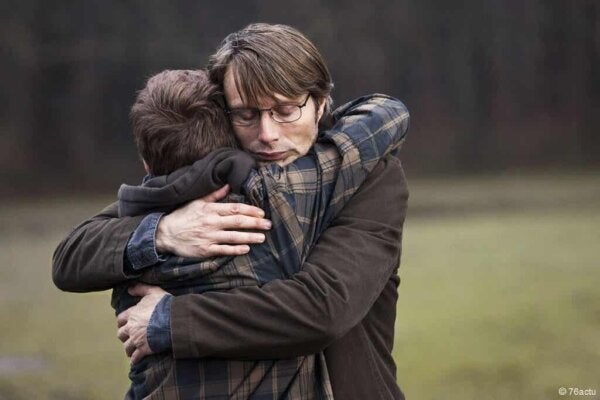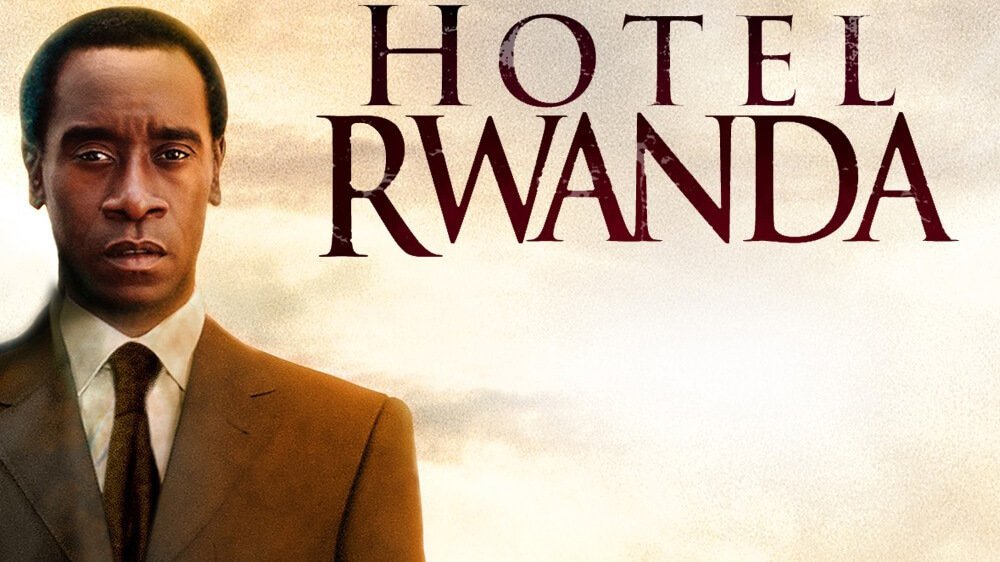The Hunt is a Danish drama that chronicles the journey of a man accused of abusing a young girl. It’s a reminder of how humans can be the most terrible monsters when a community turns away from what’s equanimous to satisfy the most primal instincts.
The film takes a risky approach: it tells a story of sexual abuse in which the victim isn’t what the viewer expects.
The movie can be rather disturbing. Thus, it may not be easy for the viewer to narrow down the emotional impact of a girl in such a vulnerable situation. In fact, it opts for this extreme on purpose, to take you away from what you want or expect to believe to understand the damage caused by a false accusation.
Many will believe there’s no need for cinema to step outside of the uncommon in this regard and put the camera in the background of stories that aren’t so common.
“I want a word with Theo. Look into my eyes. Look me in the eyes. What do you see? Do you see anything? Nothing. There’s nothing. There’s nothing. You leave me alone now. You leave me alone now, Theo. Then I’ll go. Thank you.”
-Lucas, The Hunt –
The plot of The Hunt
Lucas (Mads Mikkelsen) is well-loved by children and peers at the local kindergarten where he works in a small rural town in Denmark. Recently divorced, his ex-wife and teenage son moved away. Regardless, his life is slowly picking up, and he’s looking forward to renewing his relationship with Marcus, his son.
He’s particularly sympathetic and warm to one of his pupils, little Klara. He bestows her attention at a time when both her mother and father (Lukas’ best friend) don’t.
The girl develops an innocent crush that becomes confusing when Lukas explains to her what the appropriate boundaries between them are. Armed with the sexual language adopted from her brother, Klara’s heartbreak makes her lash out at Lukas in the form of a false accusation. Her statement to the school caretaker is too specific to not be taken seriously.
No one means any harm
Initially, no one really wants to do anything wrong in The Hunt. One can’t blame the fellow teachers for investigating the girl’s complaint.
Theo (Thomas Bo Larsen), Lukas’ best friend and Klara’s father, is dismayed and aggressive. This is understandable, as he thinks his best friend sexually abused his daughter.
Even Klara, realizing the magnitude of her confession, tries to change her statement. However, the lie already spiraled out of control, as the “human pack” transforms doubts into certainties in her mind.
The Hunt, tribal and cruel overkill
On the surface, no one who knows Lukas wants to believe he’s capable of doing such horrible things. He’s a quiet, hard-working, and kind man. However, parents and teachers are somehow obligated to take the child’s claims seriously. This is because children’s safety is paramount.
Besides, why would a child lie? How else would she know such explicit sexual matters?
Logical questions begin to surface, but the public needs a quick and reassuring answer. Thus, any idea of fairness and presumption of innocence disappears when Lukas goes to trial and the court of public opinion already convicted him.
The small community quickly turns against him. Thus, there’s no such thing as a presumption of innocence.
Every man’s nightmare
In some of the film’s earliest scenes, Lukas stalks and shoots a deer. Scenes later, the symbolism becomes obvious: he’ll later be the creature caught in a telescopic gaze. This is because public opinion will become a weapon against him.
The accusation of child abuse is a nightmare for anyone it falls upon. Thomas Vinterberg, the director, uses it to explore the mentality of a small community and the irreparable damage that the insidious nature of fear can do.
Suddenly, best friends become enemies and someone even throws a brick through a window. Lukas can’t even buy a couple of porkchops at the supermarket without someone beating him up. The fear and persecution against him become unbearable.
From the outset, this story somehow shows how fast people can jump to conclusions. This is because it’s about the importance of the presumption of innocence and the dangers of mob justice. Mikkelsen creates a complex and disturbingly silent character who finds in himself a moral fortitude and a powerful survival instinct.
Conclusion
This film is a critique of the preconceived schemes of a society. It’s an example that life is complex and dynamic and that the rights of the most vulnerable don’t have to be incompatible with moderation, fairness, and a review of each particular case.
This film, especially its disheartening ending, teaches its audience that facts and unfounded lies often lead to ignorance that’s difficult to reverse.
Furthermore, The Hunt puts your most primal human instincts on hold to give you back your critical capacity. This is because a society that overrides the presumption of innocence will only stigmatize and violate people’s rights. Thus, it’s a matter of time before this kind of easy justice turns humans into self-righteous monsters.
3 Movies That Raise Awareness
The post The Hunt, When There’s no Presumption of Innocence appeared first on Exploring your mind.













Comments